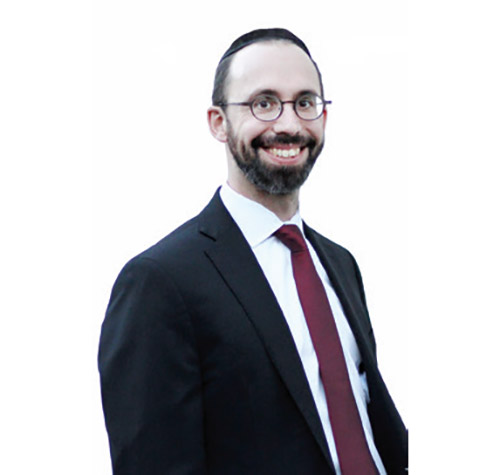
Rav Elchonon Wasserman visited a wealthy supporter of his yeshiva, and since his shoes were muddy from the road, he knocked on the side door where workers entered instead of at the grand front entrance. When the wealthy man heard Rav Wasserman had entered through the side, he was aghast! “You are ruining my daughters by entering through the side door! How can you do this to me?” he exclaimed.
Rav Wasserman was bewildered and replied, “I am so sorry, but I didn’t want to dirty your carpets with mud.”
The rich man replied, “I am a wealthy businessman, but I love Torah and love to support Torah study. How will my daughters know how valuable Torah is when they see the great Rosh Yeshiva enter my house through the side door?” So Rav Wasserman walked back outside, knocked on the front door, and walked across the expensive carpet with muddy shoes in front of the smiling rich man and his daughters. This demonstrated to the girls the value their father placed on honoring great talmidei chachamim (Torah scholars) above any material wealth and possessions.
And his daughters ended up marrying great talmidei chachamim.
This Shabbos we read Parshas Zachor—to remember that Amalek’s existence in this world attempts to obscure the presence of Hashem. Bilaam prophesized about Amelek, “Reishis goyim Amalek v’achriso adei oved.” (Bamidbar 24:20) “Amalek was the first of the nations, and his fate shall be everlasting destruction.” Amalek is called the first nation since it was the first nation to attack Klal Yisroel after they left Egypt.
Shlomo Hamelech defines Amalek as a leitz—a mocker (Mishlei 19:25) Where do we see this quality in Amalek, and why is this quality one which must be destroyed?
Rav Hutner gives a penetrating insight into the essence of Amalek. To scoff or to mock is to attempt to remove importance from something of value. A scoffer searches for a flaw in something important in order to tear it down and lower its importance in the eyes of the public. Amalek is the ultimate scoffer. Klal Yisroel had just been clearly led by the Hand of Hashem out of Egypt, through the desert and across the parted Red Sea. Hashem thereby demonstrated His choosing the Jewish nation and according them the status of Ambassadors of Hashem. The entire world was terrified of Klal Yisroel! Yet Amalek attacked Klal Yisroel precisely at this time, knowing Amalek would be harmed and lose the war, but they didn’t care. Lowering the “untouchable” status of Klal Yisroel was more important.
But what lowered Klal Yisroel’s connection to Hashem to make them vulnerable to attack?
Amalek fought Klal Yisrael in Refidim, which is a hybrid word for rafu yedeihem—their hands slackened. When something is precious, such as Torah, you hold on very tight. A looser grip indicates it’s not so important. That was the opening for Amalek.
The opposite of a scoffer is a person who praises things that have true value. Rabbeinu Yonah quotes Shlomo Hamelech, “Ish l’fi m’halelo,” (Mishlei 27:21) “Each man according to what he praises.” That is, whatever is important to a person defines who he is.
The Sfas Emes tells us Amalek is not just a nation but also an attitude toward life. Amalek is the approach of derision and scorn, labeling anything good that happens a coincidence, rather than the hand of Hashem. The urge to deride anything good is the Ameleki attitude. There is no room for that in this world.
During the Purim story, Haman was defeated at precisely the time Klal Yisroel re-accepted the Torah willingly, out of love. This willing acceptance defined who we are and what is important to us. Similarly, how much a person values Torah is not necessarily seen in how much time he spends studying but rather in how much he inwardly values Torah. Is Torah uppermost in his value system, or does he more admire successful businessmen or celebrities?
On Purim, the Rema says, one should drink more wine than he is accustomed to. This loosens a person’s tongue, allowing him to articulate what he really feels and thinks. But we must be very concerned about what we might say! Only if we have a pure attitude, an attitude centered on Torah values, can we be certain the right words will emanate.
Whether we drink on Purim or not, we always want to channel our energies to Torah values, which can be accomplished by learning and acting in ways that are befitting for children of Hashem. Just as Klal Yisroel lovingly recommitted itself to Torah on Purim, we have the ability to recommit ourselves to Torah every day.
By Rabbi Baruch Bodenheim
Rabbi Baruch Bodenheim is the associate rosh yeshiva of Passaic Torah Institute (PTI)/Yeshiva Ner Boruch. PTI has attracted people from all over northern New Jersey, including Teaneck, Bergenfield, Paramus, Rockaway and Fair Lawn. He initiated and continues to lead a multi-level Gemara learning program. Recently he has spread out beyond PTI to begin a weekly beis midrash program with in-depth chavrusa learning in Livingston and Springfield. This year he joined Heichal Hatorah in Teaneck as a Gemara iyun rebbe. His email is rb@ptiweb.org.












